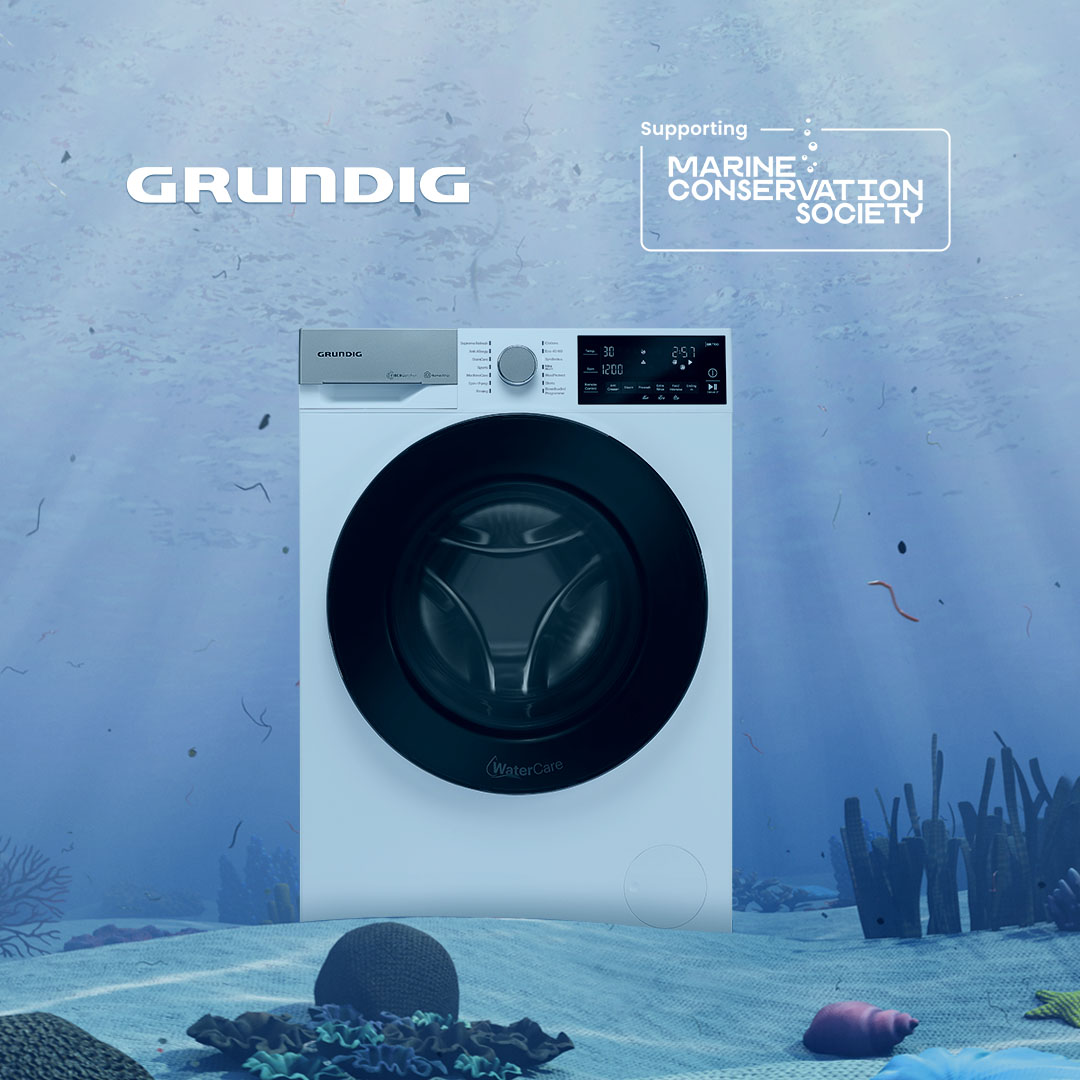Launched in 2021, Grundig’s FiberCatcher® washing machine is the World’s 1st washing machine with an integrated synthetic microfibre filter. Designed to help protect our waterways and oceans, the Grundig FiberCatcher® filters up to 90% of microplastics during synthetic washes.
Teresa Arbuckle, Managing Director of Beko plc and spokesperson for Grundig, commented:
“It is important for us as a nation to understand the extent to which our daily activities are having an impact on our planet. Grundig’s brand purpose is to lead by example and inspire people to take small steps towards a better future. We believe that each individual can positively impact the planet by making small changes in their daily activities and we are proud to empower them to achieve more sustainable living. We are committed to leading the industry forward with the launch of Grundig washing machines with FiberCatcher® technology, all with the world’s first integrated synthetic microfibre filtering system, helping minimise synthetic fibre pollution.”
To raise awareness of the impact of microfibre plastic pollution and to encourage people to take action, Grundig has partnered with the Marine Conversation Society, which works for a cleaner, better protected ocean.
Speaking on the partnership, Laura Foster, Head of Clean Seas at the Marine Conservation Society, commented:
“No matter where you live, our actions can and do impact the ocean’s health. Many people are really concerned about plastic getting into the ocean. However, many of us aren’t aware of the connection between our laundry, and microplastics entering the ocean. In fact, over 700,000 fibres are released every wash.[2] With research suggesting that it can take up to 1,000 years for microplastics to break down, stopping microfibres from going down the drain in the first place makes all the difference in slowing the flow of plastic into our ocean.[3] New technologies that capture microfibres before they reach the marine environment can contribute greatly to reducing the amount of marine pollution by stopping it at source.”
As a global brand with a strong eco-conscience, Grundig are paving the way for sustainable change, developing innovative technologies that help users minimise their environmental impact.
TOP THINGS BRITS THINK ARE MOST HARMFUL TO THE PLANET:
- Not recycling properly
- Using plastic bags
- Using plastic straws
- Not disposing of batteries properly
- Driving instead of walking
- Leaving the tap running
- Wasting paper
- Leaving the TV no standby
- Leaving appliances plugged in
- Using certain household products
[1] EPA, US Environmental Protection Agency, What You Should Know About Microfiber Pollution
[2] https://pubmed.ncbi.nlm.nih.gov/27686821/
[3] https://pubmed.ncbi.nlm.nih.gov/27686821/
